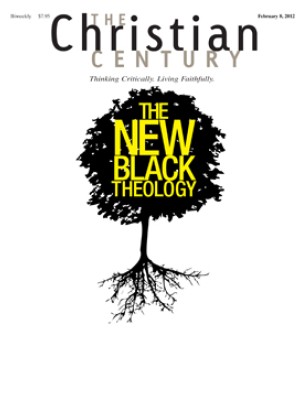Justices uphold church hire-fire rights
The U.S. Supreme Court has unanimously thrown its support behind a
church school that fired a teacher, using a widely watched church-state
case to bolster a legal doctrine that exempts religious institutions
from some civil rights laws.
Many religious groups heralded the
January 11 ruling as a firm assertion of religious freedom that keeps
personnel decisions about religious employees where they should be:
within a church, synagogue or mosque.
Nevertheless, the 9–0 ruling
supporting a Lutheran Church–Missouri Synod church and school in
Michigan drew different reactions from two leading groups concerned with
First Amendment issues.
"It is a helpful decision explaining the
important and unique way that the Constitution protects religious
organizations in matters of internal governance," said K. Hollyn
Hollman, general counsel for the Baptist Joint Committee.
The BJC
filed an amicus brief in the case, urging that the High Court
explicitly recognize the so-called ministerial exception, a principle
commonly recognized in lower courts. The National Council of Churches
and the National Association of Evangelicals joined the BJC in its
brief.
Americans United for Separation of Church and State,
however, said the Supreme Court set the bar far too high for employees
of religious institutions who seek redress against discrimination.
"The
really terrible thing about this decision is that if you fire someone
and religion is just a pretext, it can't be addressed by courts," said
Barry W. Lynn, executive director of Americans United. "It's just a
gigantic new exception, a new loophole to the civil rights law for
religious groups that will not be shut in a very long time—if ever."
Read our latest issue or browse back issues.
The
case of the now-closed Hosanna-Tabor Evangelical Lutheran Church and
School in Redford, Michigan, revolved around Cheryl Perich. She had been
elevated by the Lutheran church that ran the school to a "called
teacher" position, one with some religious responsibilities. Though
most of her duties were secular, Perich spent part of each day teaching
religion and sometimes led chapel services.
Diagnosed with a sleep
disorder, Perich took a leave of absence in 2004 and was replaced by
another teacher. Cleared by her doctors to return to work, the church
refused to reinstate her.
Perich filed a complaint with the Equal
Employment Opportunity Commission, arguing that the school was hiding
behind its religious protections to ignore the Americans with
Disabilities Act. The EEOC ruled for Perich, but she lost a lawsuit
against the school in federal court in 2008.
The school
successfully argued that the doctrine of ministerial exception gave it
broad hiring and firing powers over all religious employees, even if
they were engaged in nonreligious activities. Lawyers for the school
maintained that the Lutheran tradition requires that disagreements
within the church be settled within it and that Perich had flouted this
requirement by going to court.
Perich appealed, and in 2010 the
Cincinnati-based Sixth U.S. Circuit Court of Appeals ruled in her favor.
The Supreme Court, in an opinion written by Chief Justice John Roberts,
gave the final victory to the church, grounding the decision in the
First Amendment's guarantees of free exercise of religion and a
prohibition on government establishment of religion. Justices Clarence
Thomas, Samuel Alito and Elena Kagan filed concurring opinions.
"The
interest of society in the enforcement of employment discrimination
statutes is undoubtedly important. But so too is the interest of
religious groups in choosing who will preach their beliefs, teach their
faith, and carry out their mission," Roberts wrote. "The First Amendment
has struck the balance for us. The church must be free to choose those
who will guide it on its way."
Matthew C. Harrison, president of
the 2.3-million-member Lutheran Church–Missouri Synod, which has many
parochial schools, said the denomination was "delighted" that the
Supreme Court confirmed "a critical religious liberty in our country."
"The
court hasn't spoken this clearly on a church-state matter in almost 20
years," said Richard Garnett, a law professor at the University of Notre
Dame who wrote an amicus brief on the case in support of the church and
school. "This is bedrock," Garnett continued. "All the justices came
together to say if religious freedom means anything, it means
governments can't interfere with religious institutions' decisions on
who is going to be their minister or teacher." —RNS, ABP






